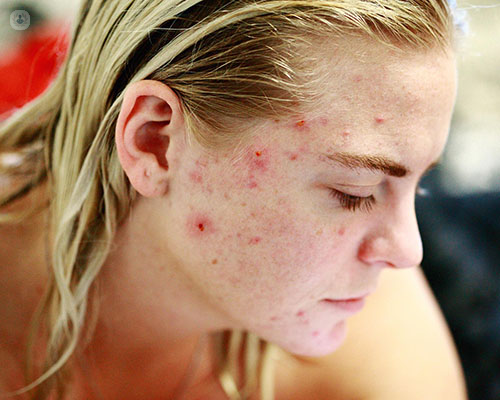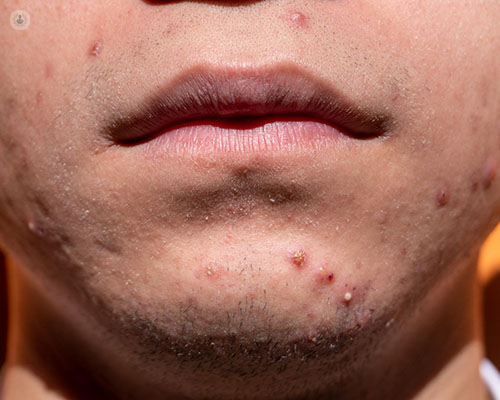Psychodermatology
What is psychodermatology?
Psychodermatology is branch of dermatology that recognises the link between the mind and the largest organ, our skin. It focuses on the treatment of skin conditions such as acne, eczema, rosacea and herpes using psychological methods.
Psychodermatology is a relatively new treatment, but there is increasing evidence showing its efficacy as a treatment for a wide range of skin disorders.

How does psychodermatology work?
It has been proven that psychological factors such as stress, anxiety or negative thoughts can worsen skin conditions. Psychodermatology aims to help patients with these psychological factors in order to improve their skin. Patients often undergo psychodermatologic treatments in conjunction with other skin treatments.
Having a skin condition such as acne or herpes can also have a grave impact on patients’ mental health, producing feelings of depression, anxiety or low self-esteem. Psychodermatology also aims to reduce the mental health impact that a skin condition like acne can have in some patients.
How are the mind and the skin linked?
The mind and skin are intrinsically linked. One of the main causes of acne is an excess in oil production in the skin. Both anxiety and stress are proven to increase the production of the hormone cortisol. Cortisol triggers a change in the skin’s pores, and an increase in production of skin oil. This oil can then clog the pores, leading to acne.
Cortisol has also been shown to affect our immune system, meaning it takes longer for acne to heal, which can then cause even more stress. The effect on the immune system can also make the skin appear red, dry and itchy, increase lines and wrinkles, increase allergic responses and damage the skin’s natural protective barrier.
Stress has also been shown to have a negative effect on a number of other skin conditions, such as eczema, rosacea, psoriasis, herpes and hives.

What kind of treatments are offered?
As previously mentioned, psychodermatologic treatments are often given in conjunction with other treatments. For example, if a patient suffers from acne, they could receive topical treatments such as benzyl peroxide, as well as antibiotics or corticosteroid injections.
If the acne is also having a negative impact on the patient’s mental health, the solution could be cognitive-behavioural therapies, mindfulness or relaxation techniques. These therapies can significantly decrease stress and anxiety, thus reducing the severity of the skin conditions. They can also address issues such as low self-esteem that often accompany skin conditions.
Psychodermatologists often employ a holistic approach to treating skin conditions. Your dermatologist may ask you many questions relating to your lifestyle, to identify elements that may be causing you stress, such as a lack of sleep, lack of exercise, poor diet or stress from work or relationships. Psychodermatologists will try and help the patient come up with solutions to these problems, which will often have a direct impact on their skin condition.
